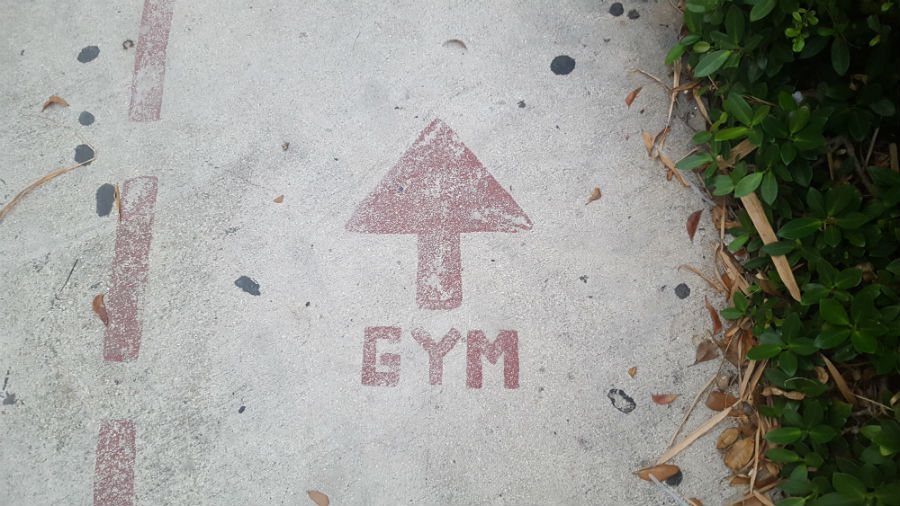Will lifting weights make me bulky?
If you’re into fitness it’s a question you can’t escape. Probably because it’s tied to this elusive idea of being “toned.” If you’re new to weight lifting, you might be hunting for an answer. And even if you’re not so new to the world of bars and bumpers, you still might be looking.
And that’s because people aren’t so honest about the answer.
Will lifting weights make you bulky? The real answer isn’t the black or white that many fitness professionals claim. And that’s because it depends.
Building muscle is a really good thing
Building muscle comes with a whole host of benefits (which we’ll go into in another article). But two of the most sought after are the compactness of your body (read: a smaller pant size) and the metabolic gains. Muscle burns more calories than fat.
So in some cases, lifting weights allows you to look smaller and also potentially eat more to stay that size. Sounds pretty great, right?
If you’ve ever taken a health class, you’ve held that prop showing what 5 pounds of fat looks like. It’s big. It’s bigger than 5 pounds of muscle. Most of us are familiar with the idea that muscle takes up less space than fat.
That means if you could start weight lifting and replace 5 pounds of pure fat with 5 pounds of pure muscle, you’d be a smaller human. And that’s the dream of lifting weights. Or one of them.
But, yes, lifting weights might make you bulky
Here’s where it all gets confused and fitness professionals get defensive. Is muscle itself bulky? No. Muscle takes up far less space on your body than the same amount (by weight) of fat. We’ve already established this.
But unless you’ve already been training for several years, you probably have a good amount of fat on your body.
That’s not to say you’re big. People who are “skinny fat” also have a good amount of fat. Simply put, unless you’re already training, you’re probably not that lean.
So while, yes, if you could wave a magic wand and replace your fat with muscle, you would get smaller. But it doesn’t work that way.
Building muscle, contrary to what many people and women’s magazines think, is a long, hard process. Other than a glorious period of newbie gains, it generally requires hard training and at least a slight caloric surplus.
(Yes, I’m ignoring “recomping” for now. We’ll get there in a minute.)
That means you’ll probably need to lose fat or gain muscle. These two goals require very different diets.
Even if you choose to gain muscle, it’s going to be a long process. You’re not going to wake up one morning suddenly much larger than before. You might even need pictures to see the progress you’re making the changes might be so subtle.
But if you start your fitness journey by putting on muscle, yes, you might look bulky. That’s because you’re adding muscle mass without removing the fat.
But that’s actually a really good way to go
Yes, it can be hard to stay zen when you feel your pants get tighter. But by focusing first on adding muscle, you might just make it easier to lose fat later.
Like I mentioned, losing fat and gaining muscle require different types of diets. You’ll need to eat excess calories to build muscle. And a calorie deficit is required for fat loss.
So what happens when you eat excess calories? If you train hard, you build muscle. And, yes, you gain a little fat (or at least don’t lose any). That might make you look “bulky.” But even if you’re not thrilled about what it does to your outside, you’ll probably love what it does on the inside.
A quick side note to say that the idea of “bulky,” also depends on your personal preferences. Check out Molly’s post over at Girl’s Gone Strong for an amazing illustration of just how many shapes and sizes women who life come in. You have to decide what “bulky” means on your body and for your goals.

But building muscle boosts your metabolism. Muscle burns more calories at rest than fat, so you’re essentially growing your base metabolic rate (BMR).
That means that when it’s time for you to focus on fat loss, you can probably do it on more calories than before. Because your body now burns more each day.
This can make “cutting,” or fat loss, easier both mentally and physically.
Some people do what’s called “recomping,” which is eating at roughly maintenance and training hard in order to convert fat to muscle.
A quick note about recomping
Recomping is a great tool for competitors. But it’s slow, and you need to be meticulous. For people new to fitness and lifting weights, the juice might not be worth the squeeze.
Competitors are trying to strategically add muscle to fit a set of standards. And because they need to be extremely lean when they step on stage, many believe it’s better not to stray too far weight-wise in the off-season. More pounds gained means a longer, potentially harder, diet down. (Mandatory side note: some competitors choose to embrace more weight in the off-season for hormonal reasons.)
That also means they’re used to all the details recomping requires, like weighing and tracking every bite of food consumed. If you’re just starting your journey, that might be overkill. You’re still going to want to track, but you can probably get away with a bite here and there, unlike those prepping to step on stage.
So if you’re simply looking to get a little leaner, have some muscle mass, and enjoy a metabolism that burns a little brighter, consider taking it one step at a time.
Will you spend some time at a size you might not find entirely comfortable? Sure. Will it make it even easier to hit your goals eventually? Probably.
Only you can decide if that trade-off is worth it. But being uncomfortable should never be your deciding factor. You are much more than your body, and there are places you can go to help deal with the fluctuations as they happen.
There are plenty of places you can go for support
It’s hard to keep the end goal in mind when you’re not enjoying parts of the journey. I’ve been there, I’m still there, and I know how it feels.
Some days you’ll love your increased strength and celebrate your weight lifting PRs. Other days you’ll feel uncomfortable in your jeans and even a personal best isn’t enough to erase those feelings. When I run into this problem, there are a couple places I turn.
The subreddit xxfitness is a great place to connect with women who are also lifting weights. Some are also in the process of putting on muscle. And you can find numerous discussions about feeling like you’re getting bulky. (Yes, many of these women also say that you can and might get bulky for a while when you start weight lifting.)
Another great resource is the Instagram account of twins Kathryn and Kendra, @kk_fit_. Other than being serious lifting goals, these girls are very open about their cycles of bulking and cutting. They openly embrace the extra fat they put on during a bulk for the muscle gains.
Also check out the blog posts of the community Eat to Perform. They believe you need to earn the right to diet (yes, really!) by building a strong metabolic base before cutting.
And you can always leave questions for me in the comments below. I don’t always have answers, but I can point you to someone who does.
Dig deeper
-
The best CBD products to soothe sore muscles and ease aching joints
-
Can’t get yourself to go to the gym? Here’s how to fix it
-
What are newbie gains, and how can I make the most of them?
-
How much cardio do I need to lose weight?
-
If the weight you can lift suddenly drops, it might actually be a good thing
